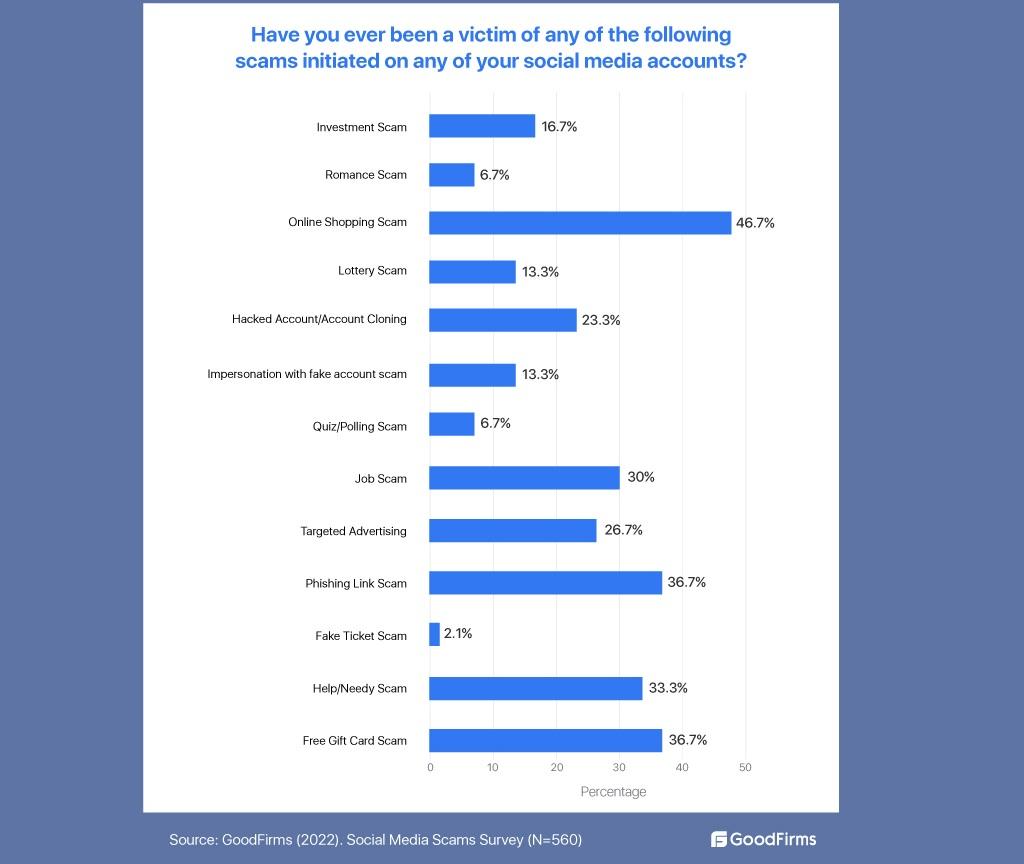According to Goodfirms research, more than 47 percent of social media users have fallen prey to online shopping scams as social media websites continue to offer low-cost setups to easily scam people online.
Also See: NASA’s Ingenuity Mars Helicopter Completes First Flight with New Navigation Software
Some of the Ads on Social Media Are Prone to Scamming People

Conducted between June 1 and June 8, 2022, the survey was conducted by GoodFirms and is available online. As online shopping scams continue to hurt the economy, phishing links and gift card scams appear to be doing their job in defrauding people online. According to the online survey, 36.7 percent of people have been victimized by gift card scams and phishing link scams.
Phishing link scams are probably the most common of all scams, where a malicious link is established to gain access to someone's personal data, such as banking details, for example. It is also reported that 33 percent of people fall for help scams, where a fake company representative pretends to help you in an emergency and demands money in return. Next is targeted advertising fraud, where attackers tend to advertise a fake online shopping store to steal someone's personal data. The list includes cloned/hacked account scams with a good 23.3 percent, investment scams, lottery scams and fake account impersonation, which hover around 16.7 percent. Exam and love scams at around 6.7% and finally, fake ticket scams at a very low percentage of 2.1%.
Now that you know how advanced scams are today, let's talk a bit about how to protect yourself from such scams. Firstly use verified online payment methods and avoid third party sites that accept payments, Secondly check if the website is 100 percent legitimate by looking at reviews and the website itself, thirdly avoid discounted offers that seem unrealistic, fourthly avoid clicking on sketchy links offering you free money, prizes is probably an element of a phishing attack and lastly, you can limit your public Wi-Fi activities. So, if you use public Wi-Fi, try not to access your personal data online. The internet has undoubtedly become an unsafe place, try to take as many precautions as possible and shop responsibly.





No comments yet for this news, be the first one!...